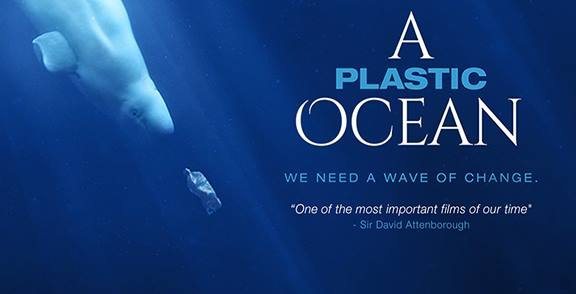Nearly 100 people were left shocked, disturbed and crying out for change after witnessing a special screening of the documentary film A Plastic Ocean in Geraldton on Wednesday.
The film, screened by Film Harvest in partnership with the Waste Authority, the Northern Agricultural Catchments Council (NACC) and Scinapse, provided an eye-opening view into the way plastics are invading even the most pristine corners of the ocean.
It described how ocean plastic has become so widespread that fish and other marine creatures are ingesting it, so that plastics are working up the food chain to the point that we are now effectively eating the plastic we throw away.
Scinapse chairwoman Emma Jackson said it was shocking to realise the extent of the damage plastic bags cause not only to marine life but also to we humans.
“It’s really very disturbing to see the result of seemingly innocent uses of plastic wreaking such catastrophic consequences on our environment,” Ms Jackson said.
The screening was followed by a panel discussion featuring environmental experts.
Batavia Coast Maritime Institute’s (BCMI) Maryke Gray shared findings from a recent microplastics study undertaken by the Conservation Council of Western Australia and UWA.
The citizen science project, supported by NACC and BCMI, involved volunteers collecting sand samples from beaches around Geraldton and the Abrolhos and measured the quantity of microplastics found.
“These types of projects are really important to raise the awareness of the impact of microplastics on the local environment,” Ms Gray said.
Drummonds Coast Care representative David O’Meara shared his story and passion about the marine environment and how he became inspired to start documenting all the rubbish he collected with Tangaroa Blue.
“My first morning walk became just a clean-up exercise, stopping every few paces to pick up another piece of rubbish until I was fully loaded,” he said.
“I thought no worries, I’ll have a clean beach to walk on the next morning, uninterrupted. Boy was I wrong! There was just as much as the first morning and each morning afterwards.”
NACC Sustainability Coordinator and Scinapse Chair Emma Jackson completed the panel talking about recycling in Geraldton, and how the community can get involved.
“If everyone makes small changes, like saying no to a plastic straw in your drink, or taking your reusable coffee cup next time you get a coffee we can start turning the tide on plastic,” Ms Jackson said.
“There is a lot of community interest in recycling and how to reduce single-use plastic. Just before the film I had one lady come up to me to talk about a new community initiative starting up in Geraldton called Boomerang Bags. Volunteers sew Boomerang Bags using recycled materials and make them available to consumers at retailers (to use and return) to provide a sustainable alternative to plastic bags. Check out the Boomerang Bags Geraldton Facebook Group to find out more.
Find out where you can recycle at http://www.narvis.com.au/recycle/. Looking for more of a challenge? Consider signing up for Plastic Free July.
Want to learn more about the science behind the film A Plastic Ocean? The Plastic Oceans Foundation have created a comprehensive science review covering the key facts and evidence presented in the film.
Scinapse is a volunteer group of science-lovers dedicated to fostering engagement in science in the Mid West. Find out more at www.scinapse.org.au
This project was funded by the Waste Authority through the Waste Avoidance and Resource Recovery Account and delivered as a partnership between Film Harvest, the Northern Agricultural Catchments Council, Scinapse, Inspiring Australia, the City of Greater Geraldton, and Rip-It Security Shredding and Recyclers.

